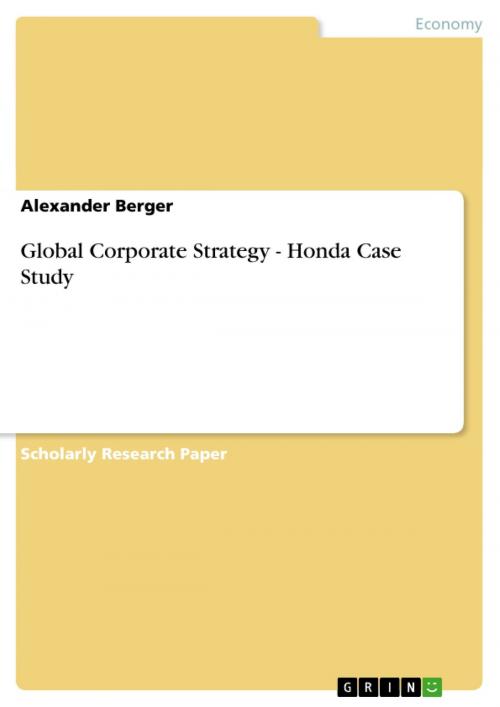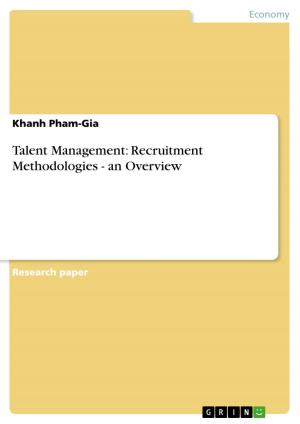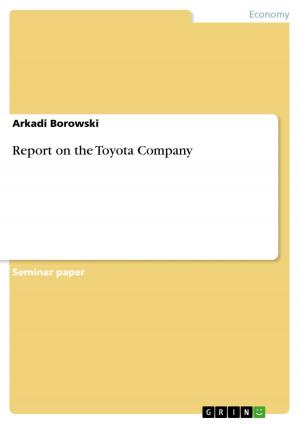Global Corporate Strategy - Honda Case Study
Business & Finance, Industries & Professions, Distribution| Author: | Alexander Berger | ISBN: | 9783640957811 |
| Publisher: | GRIN Publishing | Publication: | July 13, 2011 |
| Imprint: | GRIN Publishing | Language: | English |
| Author: | Alexander Berger |
| ISBN: | 9783640957811 |
| Publisher: | GRIN Publishing |
| Publication: | July 13, 2011 |
| Imprint: | GRIN Publishing |
| Language: | English |
Research Paper (undergraduate) from the year 2011 in the subject Business economics - Trade and Distribution, grade: 70, University of Sunderland, course: Global Corporate Strategy, language: English, abstract: The report is divided into four parts. The first part will analyse the current situation of Honda, which gives the reader insight in the current state of Honda´s business. The second part will presented different dichotomies and analyse how Honda has dealt with them in the past. In the third part, the differences between the western management model and the Japanese management will be analysed and then related to Honda's management concept. In addition, cultural influences based on Hofstede will be presented. The last part deals with corporate social responsibility and Corporate Governance focussing on Honda, Nissan, and Chrysler. Within the automobile industry, there exists a high intensity of rivalry. Automobile manufacturers are seeking for innovative strategies in order to be successful in the long-term. In addition, the highly debate topic 'global warming' also puts pressure on the automobile manufacturers forcing them to develop new low emission cars and be more responsible for the society. The Honda Motor Company is a shining example for setting up flexible innovative strategies, which fit into a fast changing environment.
Research Paper (undergraduate) from the year 2011 in the subject Business economics - Trade and Distribution, grade: 70, University of Sunderland, course: Global Corporate Strategy, language: English, abstract: The report is divided into four parts. The first part will analyse the current situation of Honda, which gives the reader insight in the current state of Honda´s business. The second part will presented different dichotomies and analyse how Honda has dealt with them in the past. In the third part, the differences between the western management model and the Japanese management will be analysed and then related to Honda's management concept. In addition, cultural influences based on Hofstede will be presented. The last part deals with corporate social responsibility and Corporate Governance focussing on Honda, Nissan, and Chrysler. Within the automobile industry, there exists a high intensity of rivalry. Automobile manufacturers are seeking for innovative strategies in order to be successful in the long-term. In addition, the highly debate topic 'global warming' also puts pressure on the automobile manufacturers forcing them to develop new low emission cars and be more responsible for the society. The Honda Motor Company is a shining example for setting up flexible innovative strategies, which fit into a fast changing environment.















